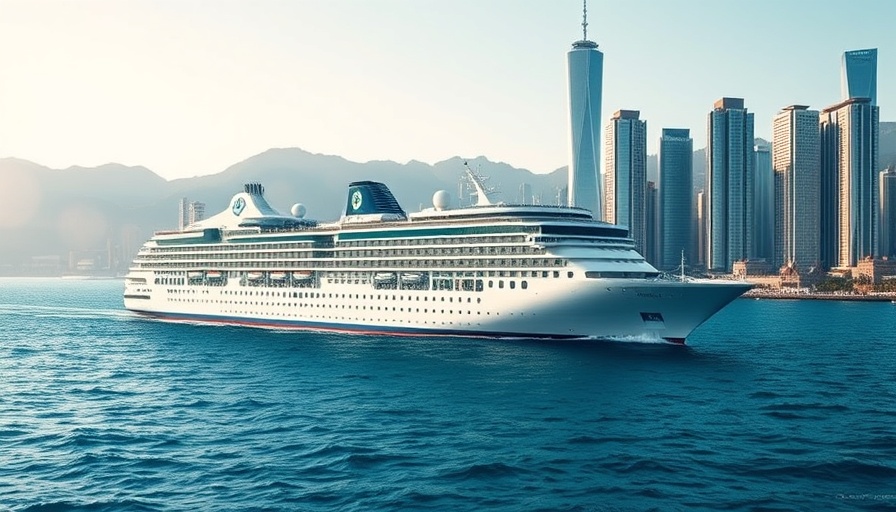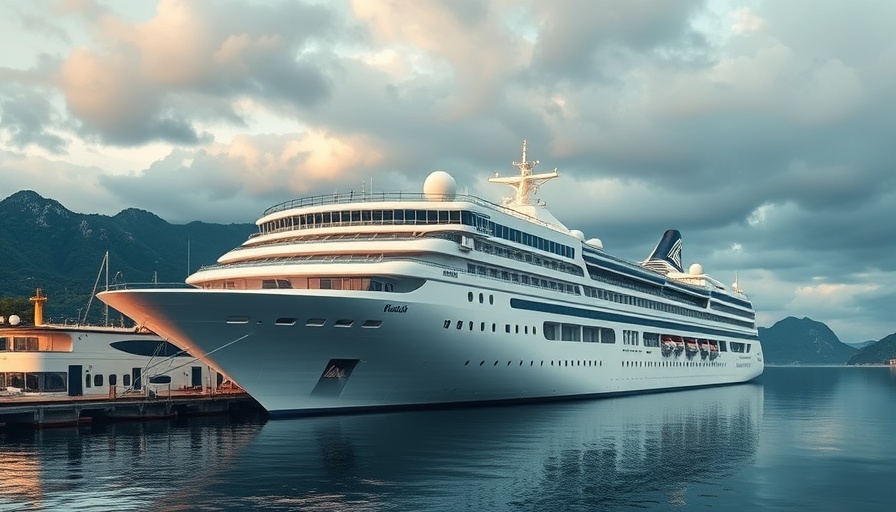
Middle East Cruise Season: Navigating New Waters
The cruise industry in the Middle East is undergoing a pivotal shift as major brands adjust their plans for the upcoming 2025-26 season. Notably, two brands under Carnival Corporation - AIDA and Costa - have made headlines by canceling their scheduled operations in the region, citing the need for reliable clarity for their guests.
Understanding the Changes
AIDA Cruises was the first to announce its cancellation, with the AIDAprima scheduled to sail from Doha, Abu Dhabi, and Dubai between November 2025 and March 2026. Instead, the brand will reallocate its ships to European waters. Similarly, Costa Cruises had planned to deploy the Costa Toscana in the Middle East but opted for the Mediterranean this winter.
Who's Staying Afloat? A Look at Confirmed Operators
Despite the departures of AIDA and Costa, other cruise companies are still committed to sailing the Arabian Gulf and Red Sea during this timeframe. Celestyal, MSC, and TUI Cruises are set to operate, presenting travelers with several nuanced options. For example, Celestyal is doubling its operations with two ships, Celestyal Journey and Celestyal Discovery, set to depart from key hubs in Qatar and the UAE.
Introducing Aroya Cruises
Adding intrigue to the cruise landscape is Aroya Cruises, a newcomer planning to set sail from Saudi Arabia. This ship will offer itineraries around the Red Sea after completing its inaugural Mediterranean season. Their confirmed operation spans from September 2025 to January 2026, targeting destinations in Saudi Arabia and Egypt.
What's Next for Cruising in the Region?
With the recent cancellations, the dynamics of Middle Eastern cruising continue to evolve. MSC Cruises aims to bring LNG-powered sustainability to the Arabian Gulf aboard the MSC Euribia, offering cruises from November 2025 to March 2026. Likewise, TUI is expected to operate a two-ship series with Mein Schiff 4 and Mein Schiff 5, contributing to an exciting influx of travelers to the region.
The Bigger Picture: Trends and Implications
This shift in the cruise sector reflects broader trends within the travel industry. Brands are reassessing their operational risk and adjusting pre-existing plans in response to regional conditions. For consumers, this means more options from companies willing to adapt and respond to market demand effectively.
What This Means for Travelers
For potential cruise-goers eyeing the Middle East, the cancellation of popular brands could bring mixed emotions. On one hand, fewer options may limit flexibility; on the other, an emphasis on confirmed operators like MSC and TUI may ensure a more reliable experience for travelers. As the market narrows, savvy travelers must navigate these changes carefully, weighing reliability against flexibility when making travel decisions.
As the cruise industry continues to adapt to shifting dynamics, it remains imperative for consumers to stay informed. Engaging with the latest updates will not only enhance travel experiences but also provide clarity amidst the evolving landscape of cruise offerings.
 Add Row
Add Row  Add
Add 




Write A Comment